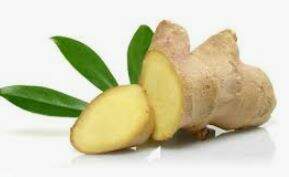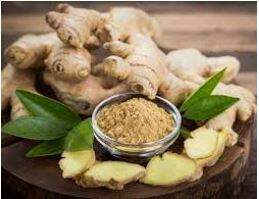 With its warm, pungent, peppery flavor, ginger has been used in a multitude of traditional and modern recipes and in several forms of alternative medicine throughout history. Rich in antioxidants, ginger is thought to have many health benefits.
With its warm, pungent, peppery flavor, ginger has been used in a multitude of traditional and modern recipes and in several forms of alternative medicine throughout history. Rich in antioxidants, ginger is thought to have many health benefits.
For example, studies have shown a small quantity (1 gram or more) of ginger to be effective at treating nausea caused by indigestion, motion sickness, chemotherapy, and morning sickness.
Ginger also appears to have strong anti-inflammatory properties. For instance, it contains the inflammation lowering compound known as gingerol. This makes ginger a great natural way to help the body stay in balance.
One study found 2 grams of ginger extract per day to be as effective as aspirin in decreasing markers for colon inflammation.
Ginger can also help with pain management. Research has found that a mixture of ginger, cinnamon, mastic, and sesame oil decreased pain and stiffness in patients with osteoarthritis with similar effectiveness as aspirin or ibuprofen. It is also thought to be effective in treating menstrual pain.
 The ginger rhizome contains several compounds, mainly gingerol and shagelol, which have antibacterial and antifungal effects which help fight against infections. Research shows ginger to have an antibacterial effect higher than that of certain antibiotics. It has shown antiviral activity against RSV, a common respiratory virus, as well as antimicrobial activity against E. coli, salmonella typhi, and bacillus subtilis.
The ginger rhizome contains several compounds, mainly gingerol and shagelol, which have antibacterial and antifungal effects which help fight against infections. Research shows ginger to have an antibacterial effect higher than that of certain antibiotics. It has shown antiviral activity against RSV, a common respiratory virus, as well as antimicrobial activity against E. coli, salmonella typhi, and bacillus subtilis.
Ginger may be cancer preventative due some of its key compounds namely gingerol, shogaol, and paradols. These compounds are thought to have anti-cancer properties related to high levels of antioxidant content, the ability to increase anti-tumor activity, and cell invasion inhibition, and a role in the regulation of overall inflammation contributing to certain types of cancers.
Research has found that ginger may have the ability to reduce plasma glucose levels, insulin, triglycerides, and total cholesterol in patients with Type-2 diabetes. One study has linked ingestion of ginger to decreased insulin levels, LDL cholesterol and total cholesterol levels and increased insulin sensitivity in patients with Type-2 diabetes.
Ginger has been identified as supportive of heart health. Consuming ginger can inhibit formation of clots, enhance the dissolving of clots, significantly decreasing triglycerides and LDL and increasing HDL cholesterol. Several promising trials have shown dried ginger powder to reduce arterial plaque.
In addition to the above, ginger is thought to have boost metabolism, and positively affect memory functions.


Leave a Reply